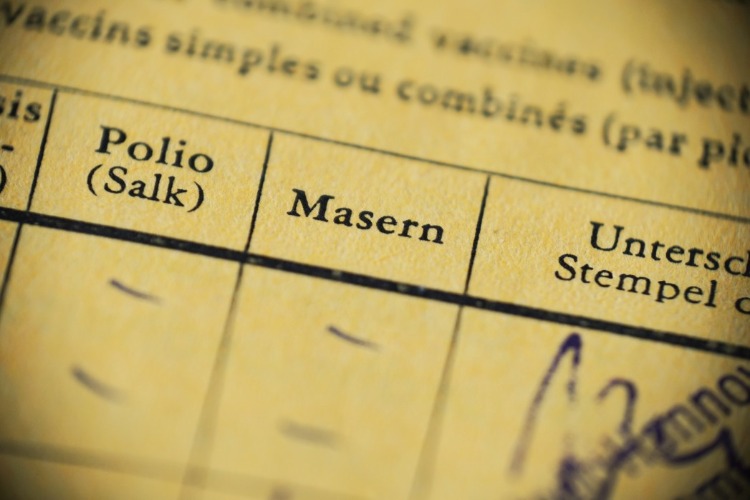Polio vaccination will eradicate polio in Africa
With the help of a polio vaccination against polio, Africa was able to eradicate the wild polio virus after a campaign that had lasted three decades. The achievement is an important step in ridding the globe of the virus. There is no cure, but the polio vaccine will protect children for life. Only Afghanistan and Pakistan still report cases. However, victory in the fight against the disease also has a hollow note.
Could polio vaccination drive the virus away?

Every year hundreds of people across Africa are still infected with circulating poliovirus from vaccines. These can affect people in areas where there is only one partial vaccination. The African cases of the vaccine-derived tribe causing the same symptoms as the wild animals rose from 68 in 2018 to 320 last year. These cases could increase again in 2020 as many vaccination campaigns failed to take place during the lockdown due to coronavirus. Nigeria is the last African country declared polio-free. However, it caused more than half of all cases worldwide less than a decade ago.
Poliomyelitis is a virus that spreads from person to person. This usually happens through contaminated water. It can cause paralysis by attacking the nervous system. Two out of three strains of the wild poliovirus have been wiped out worldwide. Africa is now to be declared free of the last remaining strain of wild polioviruses with immediate effect. More than 95% of the African population has now been vaccinated. This was one of the conditions that the Africa Regional Certification Commission set before it could declare the continent polio-free. Now all that’s left in Africa is the polio vaccine-derived virus. This is a rare form of the virus that mutates from the oral polio vaccine and then can spread to non-immunized communities. The World Health Organization (WHO) has identified a number of these cases in Nigeria, the Democratic Republic of the Congo, the Central African Republic and Angola.
Future prospects

The last of the polio-threatened communities live in some of the most complicated places to run vaccination campaigns – in Borno state in remote northeastern Nigeria and at the epicenter of the Boko Haram uprising. However, widespread misinformation about the vaccine and military conflict have slowed immunization. From survivors to traditional and religious leaders to school teachers, parents, volunteers and health workers, a huge coalition developed to defeat polio. Together they traveled to remote communities to immunize children.
The poliovirus mainly affects children under the age of five. First symptoms are fever, fatigue, headache, vomiting, stiffness of the neck and pain in the limbs. It also penetrates the nervous system and can lead to total paralysis within a few hours. One in 200 infections leads to irreversible paralysis. Among the paralyzed, 5% to 10% of people die when their respiratory muscles become immobilized. Polio can easily be imported into a country that is free from it, and from there it can spread rapidly among unimmunized populations. This happened in Angola, which defeated polio in 2001 despite decades of civil war. The country remained polio-free for four years until a number of cases were filed from outside the country in 2005.
WHO says it is important that countries remain vigilant and avoid complacency until there is global extermination. If they give up their defense by not vaccinating, the polio could spread quickly again. In order to eradicate all types of polio, including those from vaccines, efforts must continue alongside surveillance to protect children from being paralyzed by the disease in the future.
The post polio vaccination leads to the eradication of polio in Africa appeared first on Deavita.com | Home ideas, design, hairstyles, make-up, lifestyle, health and beauty tips.
















